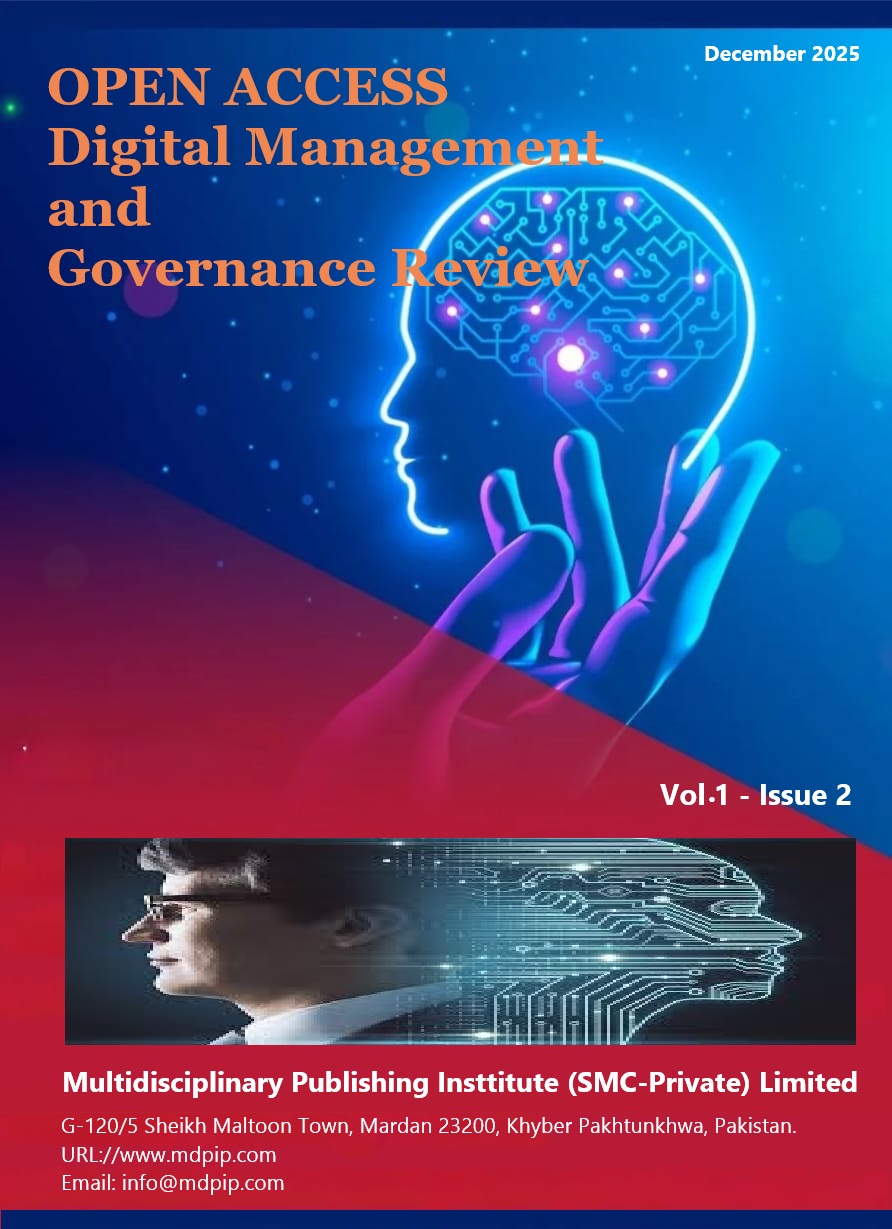Seizing AI's Socio-Organizational Vulnerabilities: A Call for Auditable Digital Governance
Keywords:
Seizing AI's Socio-Organizational Vulnerabilities, Social Vulnerabilities and Ethical Issues, The Erosion of Human Intelligence and Cognitive Integrity, Strategies for Overcoming AI’s Vulnerabilities, The Mandate for Open Accountability, Building Auditable Digital StewardshipAbstract
The rapid proliferation of artificial intelligence (AI) technologies has revolutionized digital management and governance, offering unprecedented efficiencies in data processing, decision-making, and resource allocation. From predictive analytics in public administration to automated diagnostics in healthcare, AI promises to enhance organizational performance and societal well-being. However, this advancement is not without peril. Social and organizational vulnerabilities—such as biases embedded in algorithms, privacy breaches, and unequal access to benefits—pose significant risks. These vulnerabilities challenge human intelligence by fostering over-reliance on machines, potentially eroding critical thinking and autonomy. Ethical issues, including fairness, accountability, and the potential for discrimination, further complicate AI's integration. This editorial explores these challenges and proposes strategies for overcoming them, drawing on interdisciplinary insights to advocate for resilient, ethical AI governance in open access digital frameworks. In an era where AI systems process vast datasets to inform decisions in critical sectors like healthcare, finance, and public policy, social vulnerabilities arise from the amplification of existing inequalities. For instance, algorithms trained on biased historical data can perpetuate discrimination against marginalized groups, leading to unequal outcomes in hiring, lending, or law enforcement. The current discourse often highlights ethical concerns in isolation. However, the root problem is structural, stemming from three interlocking areas: AI's inherent vulnerabilities in practice, the insidious challenges to human intelligence, and the pressing need for governance and open accountability.






